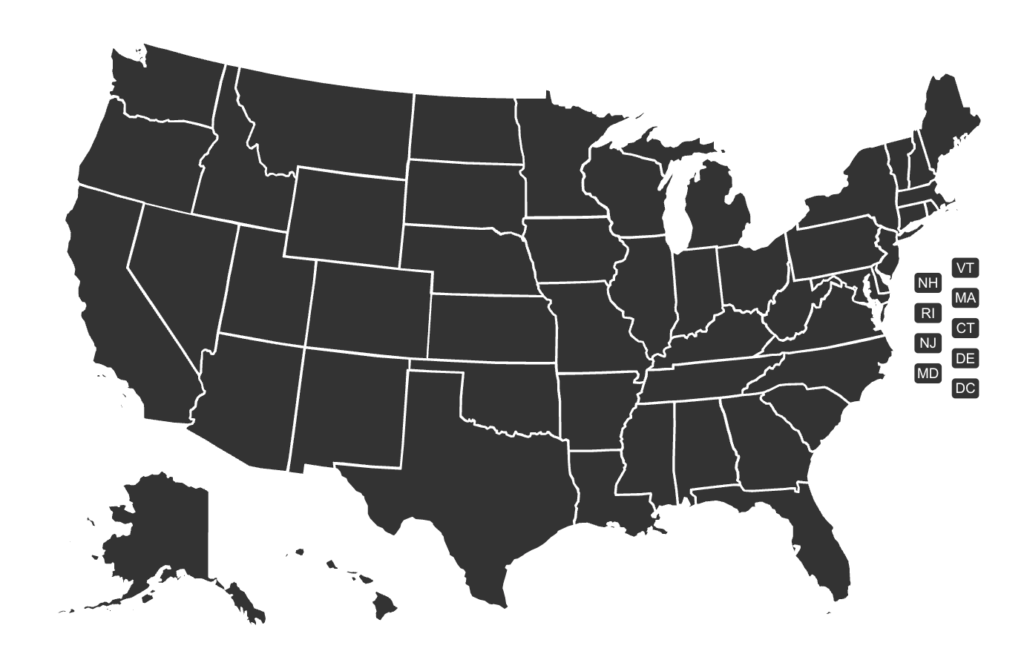Complete Guide to the Psychiatric-Mental Health Nurse Practitioner (PMHNP) Specialty
Definition: What Is a Psychiatric-Mental Health Nurse Practitioner (PMHNP)?
A Psychiatric-Mental Health Nurse Practitioner, or PMHNP, diagnoses and treats individuals who have mental health needs and substance abuse issues. In many cases, these health professionals prescribe medications and engage in therapy sessions with patients. They also complete assessments and evaluate treatment efficacy for their clients. Often, they work with other medical professionals to provide holistic medical care.
In order to work in this position, nurses may obtain certification via the American Nurses Credentialing Center. Nurse practitioners must typically obtain at least a master’s degree from an accredited institution as well as licensure to practice in their region.
PMHNPs work in a variety of settings, including independent practices, mental health units in hospitals, and psychiatric hospitals. These professionals also work with a variety of patients, including children, teenagers, adults, and seniors. Some PMHNPs work in subspecialties that allow them to deliver service to people in specific niches.
Psychiatric-Mental Health Nurse Practitioner Scope of Practice
PMHNPs perform a variety of duties each day. These include:
- Prescribing and managing medications in accordance with patient treatment plans
- Diagnosing and assessing psychiatric problems and illnesses
- Identifying health goals for patients
- Recording patient symptoms and complaints
- Treating patients following diagnosis and assessment
- Working with psychiatrists and other medical professionals to build individualized treatment plans
- Providing therapeautic treatment for individuals, groups, and families
- Educating families about mental health
- Assisting clients as they adapt to life transitions
- Documenting medical histories
- Promoting and assisting with self-care needs
- Collaborating with other members of a medical team
Skills & Abilities
PMHNPs should possess the following traits and attributes in order to be successful in the role:
- Professionalism
- Problem-solving skills
- Analytical skills
- Advocacy for mental health
- Excellent communication
- Flexibility
- People-oriented
- Empathy
- Detail-oriented
- Leadership
- Active listening
- Mental health education and background
- Nursing experience
- Emotional intelligence
- Teamwork
Psychiatric-Mental Health Nurse Practitioner Certification & Subspecialties
In order to ensure that healthcare organizations recognize your hard work, it’s vital to get certified as a part of your NP education. A solid online psychiatric-mental health NP program will have you well-prepared to take a certification exam. Certification information is as follows:
| Psychiatric-Mental Health NP (Across the Lifespan) Certification (PMHNP-BC) | ||
|---|---|---|
| Organization | American Nurses Credentialing Center (ANCC) | |
| Cost | $395 standard pricing, $295 for American Nurses Association members | |
| Number of Questions | 175 | |
| Eligibility Requirements | Active RN license, master’s, postgraduate, or doctorate degree, graduate-level courses in pharmacology, physiology/pathophysiology, and health assessment, and clinical work in at least two psychotherapeutic treatment modalities |
Students who opt to become psychiatric-mental health nurse practitioners may receive a degree in the field, but it is also possible to take elective courses and fulfill clinical requirements in a subspecialty area. This allows candidates to enter a niche practice and branch out into different fields. The subspecialty an individual chooses may impact their work environment, demand, and potential salary.
These are a few subspecialties to consider:
- Addiction medicine
- Childhood and adolescence
- Forensics
- Psychosomatic
- Geriatric
Subspecializing as a PMHNP is optional, and it’s important to note that some subspecialties may require further certification.
Becoming a Psychiatric-Mental Health Nurse Practitioner
To become a nurse practitioner, prospective students will need to decide on a degree pathway and complete an accredited online PMHNP program. Degree levels will depend on the nurse’s prior education and future career goals, but include the following pathways:
After graduating, the next step is to become licensed and certified as a PMHNP in your home state. It’s important to understand your state’s practice authority so that you will know what kind of role you will be able to perform as a psychiatric NP – states with full practice authority grant nurse practitioners much more autonomy than states with restricted or reduced practice.
For current RNs looking to gain experience in the field before enrolling in an online PMHNP program, seeking employment in psychiatric offices, hospitals, rehab clinics, or public health can be advantageous.

- Alabama
- Alaska
- Arizona
- Arkansas
- California
- Colorado
- Connecticut
- Delaware
- Washington, DC
- Florida
- Georgia
- Hawaii
- Idaho
- Illinois
- Indiana
- Iowa
- Kansas
- Kentucky
- Louisiana
- Maine
- Maryland
- Massachusetts
- Michigan
- Minnesota
- Mississippi
- Missouri
- Montana
- Nebraska
- Nevada
- New Hampshire
- New Jersey
- New Mexico
- New York
- North Carolina
- North Dakota
- Ohio
- Oklahoma
- Oregon
- Pennsylvania
- Rhode Island
- South Carolina
- South Dakota
- Tennessee
- Texas
- Utah
- Vermont
- Virginia
- Washington
- West Virginia
- Wisconsin
- Wyoming
Psychiatric-Mental Health Nurse Practitioner Employment Opportunities
The field of PMHNPs may be growing. Nurse practitioners are expected to see a 26% growth in the field between 2018 and 2028. Employment is meant to change by about 62,000 individuals. Shifting attitudes toward nurse practitioners may influence employment opportunities in the coming year. Higher demand for nurse practitioners is especially common in rural and inner-city areas that may currently lack healthcare resources.
The demand for healthcare services continues to grow, and a stronger emphasis on the need for mental health care may impact career prospects for PMHNPs. Individuals seeking preventative services and drug addiction services may also turn to PMHNPs for further assistance. Additionally, the aging baby boomer population may lead to an increase in opportunities for those who specialize in geriatric care.
Nurse practitioners who specialize in mental health work in a variety of environments, each one offering unique challenges and benefits. Common workplace settings for PMHNPs:
- Physician offices
- Medical hospitals
- Psychiatric hospitals
- Private practices
- Outpatient care services
- Addiction clinics
- Educational services
- Senior care centers
Psychiatric-Mental Health Nurse Practitioner Salaries
The average annual salary for nurse practitioners is $109,820 according to 2019 BLS figures. The lowest 10% of nurse anesthetists, midwives, and practitioners earn $82,460, while the highest 10% earn over $184,180. However, PMHNP salaries can run as high as $110,000.
Working in the mental health field might mean that your salary differs from these findings. Factors that influence nurse PMHNP salaries include:
- Work location
- Geographic region
- Subspecialty
- Level of education and experience
- On-call availability

